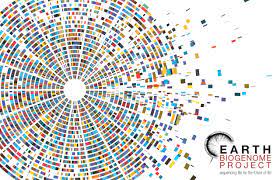What began as a global effort to record the genomes of all Earth-based organisms, has rapidly made progress within the past few years. The Earth BioGenome Project is a network of projects that share data regarding the genomes of any organism. A genome is an organism’s complete set of genetic information. Collecting genome information allows scientists to make breakthroughs in medicine, disease treatment, and a plethora of other studies. With Earth projected to lose around 50% of its biodiversity approaching 2100, genome sequencing could provide the resources necessary to keep certain species from going extinct and help ecosystems to rebound and thrive. The entire EBP (Earth BioGenome Project), when completed, will contain the genomes of over 1.8 million species.
According to the Proceedings of the National Academies of Sciences, the project has completed the startup phase. Since its conception in 2018, the EBP has amassed 5,000 scientists and staff throughout 22 different countries. Wasting no time, the project has already mapped out 200 genomes with hopes of reaching 3,000 by the end of 2022. Hitting 3,000 would put the EBP in an optimistic position to reach their phase 1 goals. Their main goal in this phase is to sequence the genomes of around 9,400 taxonomic families. From here, the EBP could pursue the next steps in reaching the final goal.
Within the network of EBP, there have been numerous global efforts to map out the genomes of all species. A prime example of this is the Africa BioGenome Project. With a group of scientists from multiple African institutions, their goals are very similar to that of the EBP in nature. Though, as expected, the ABP (Africa BioGenome Project) focuses solely on their continent for the time being. As they continue to collect and share their data, the EBP will expand. Other projects involved in the EBP network include the United Kingdom-based Darwin Tree of Life Project and the Vertebrate Genome Project. All of these projects are being conducted in a global effort to improve the lives of humans, animals, vegetation and prevent the spread of illness. With genetic research creating some backlash as well as ethical implications, the EBP and International Scientific Committee have created standards for the conduction of research in respect to ethical, diverse, and social jurisdictions. The EBP continues to grow and will most likely see that expansion rise exponentially within the next few years.


